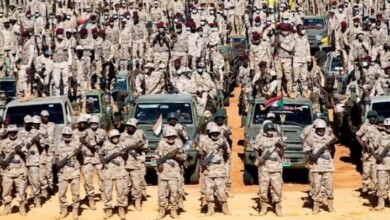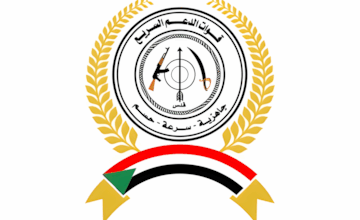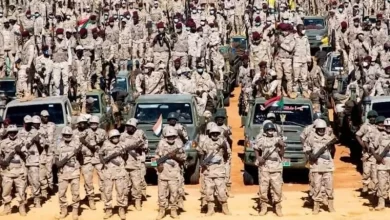Harsh criticism after journalist demands Security Forces to behead satellite channel correspondent

A number of Sudanese media professionals and activists have harshly criticized the leader in the Islamic Movement, Abdel Majid Abdel Hameed, who called on the Security Forces to behead the Sudanese media professional and correspondent for (Asharq) Channel, Maha Al-Talib, after she presented a news report on the war in Sudan that was broadcasted on the channel. The report included statements from the Rapid Support Forces (RSF) to the channel.
Questions and Condemnation
Journalist Abdel Majid Abdel Hameed, a leader in Al-Bashir’s regime, asked in a post on his Facebook page: “Who is behind the correspondent for Asharq Channel in Sudan?” He added: “Who provides her with protection in Port Sudan to dare to attack the Sudanese people and Army, going as far as to report news about the rebel gangs and militias with such boldness that no one has done before?!”
He commented on these questions, saying: “In the capital of the country that owns this channel, the head of any journalist who reports a single line from an opposition figure will fly off, let alone report a statement -on air- from a rebelling party threatening the country’s Army with defeat.”
In a statement addressed to the General Intelligence Service and the Sudanese Minister of Information, he continued: “If you heard this press report and remained silent, that’s a disaster.. and if you didn’t watch or listen, that’s an even greater disaster.”
The subject of the report broadcasted by the channel on Friday revolved around the raging conflict between the Sudanese Armed Forces (SAF) and the Rapid Support Forces (RSF) to control Khartoum state. The report included confirmations of the continued presence of the Rapid Support Forces in the state, which was corroborated by sources from the Rapid Support Forces to the channel’s correspondent.
Widespread Rejection
Following Abdel Hameed’s post, many Sudanese media professionals wrote posts in which they expressed their rejection of such statements, as they considered it to be an incitement against journalists.
Sudanese journalist Shamael Al-Nur considered such threats “unfortunate,” especially since they come from “colleagues in the profession,” noting that the journalistic community paid a heavy price as a result of the incitement, in which lives were lost and blood was shed, according to what she stated in a post on her Facebook page.
Al-Nur pointed out that Al-Talib is “A correspondent who conveys the facts as they are from all parties and deals professionally with all official statements,” considering that to be the basics of journalistic work, which doesn’t necessitate much explanation, according to her.
For his part, writer and journalist Maher Abu Al-Joukh referred to the incident in which a number of Sudanese media professionals adopted a position in solidarity with the author of the post when he was arrested by the Security Forces last year, noting that the solidarity came despite their political differences with him.
Abu Al-Joukh encouraged others to confront the differences with a professional response instead of incitement, reiterating the professionalism of journalist Maha Al-Talib and her steadfastness in the face of challenges, according to a post he made on his social media pages.
War Violations Against Journalists
It is noteworthy that Sudanese journalists were subjected to numerous incitement campaigns during the war, and they faced a number of security risks, which resulted, according to statistics from the Sudanese Journalists Syndicate (SJS), in (40) cases of involuntarily disappearance, arrest and detention, among which (6) were female journalists, bringing the total number of cases of involuntarily disappearance, arrest and detention since the outbreak of the war to (69), including (13) female journalists.





